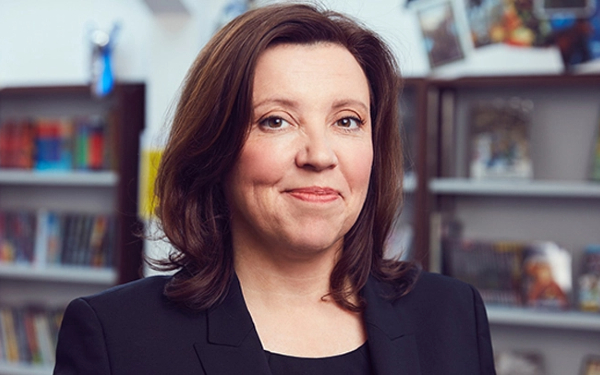
The government’s Illegal Migration Bill has passed its first parliamentary hurdle as the Children’s Commissioner for England issued a stark warning about its impact on vulnerable children seeking refuge in the UK.
The bill, which would effectively ban anyone who comes to the UK without leave to enter or remain from claiming asylum – in most cases regardless of human rights or modern slavery claims – passed its second reading in the House of Commons on Monday, by 312 votes to 250, courtesy of the Conservatives’ 66-seat majority.
The legislation has met with widespread opposition from social work bodies and children’s charities including because it would allow for the detention of unaccompanied children deemed to have entered the country illegally, their removal on turning 18 and their accommodation in Home Office-commissioned facilities outside the scope of the Children Act 1989.
Commissioner Rachel de Souza took up these issues ahead of Monday’s second reading of the bill, in an open letter to home secretary Suella Braverman and a separate briefing to MPs.
Home Office accommodation proposals ‘unacceptable’
The commissioner rose particular concerns about the bill’s provisions allowing the Home Office to accommodate unaccompanied children deemed to have entered the country illegally before placing them with councils, similar to its current practice of housing those who cannot be taken into local authority care on arrival in hotels.
In its explanatory notes on the bill, the government said that the home secretary – as now – would not be any child’s corporate parent and would therefore not have any duties to them under the Children Act 1989.
Instead, it said it would be for the local authority where an unaccompanied child was physically located – ie the council area for the relevant Home Office-commissioned accommodation – to “consider its duties under the Children Act 1989”, though without specifying whether such an authority would have such duties.
In her briefing to MPs, De Souza said that the bill “formalises a situation where children who have come to this country alone, fleeing abuse or persecution, are treated differently to children living who here are experiencing abuse”.
This is unacceptable. A child is a child, no matter their country of origin.”
In her letter to the home secretary, de Souza asked what form the accommodation would take, separately telling MPs that it was not clear from the bill whether it would be regulated, what standards it would have to meet, whether it would be inspected, what package of care children would receive and how they would be kept safe”.
She said that, from several visits to hotels, she was “unconvinced the Home Office has been able to adequately care for children”, in the context of many having gone missing from the settings, and stressed that they should be treated as looked after from the time they enter the country.
Children ‘should be exempt from detention’
De Souza also told MPs that children – both those who are unaccompanied and those with their families – should be exempt from the bill’s provisions for asylum seekers to be detained for 28 days if they are deemed to have entered the UK illegally.
Currently, children with families would be so detained and unaccompanied children could be incarcerated ahead of their 18th birthdays or pending them being given limited leave to remain in the UK until they reach adulthood.
Related articles
The commissioner said the bill looked set to significantly increase the detention of children in immigration settings, a phenomenon that has reduced significantly over the past 13 years on the back of a 2010 government commitment to end the practice.
She added that it was not clear from the bill where children would be detained and how the settings would be inspected to ensure they were safe/
‘Deeply concerned’ over removal provisions
De Souza also raised concerns about provisions in the Illegal Migration Bill allowing the government to remove unaccompanied children from the country. While the bill would place a duty on the home secretary to remove asylum seekers – including families with children – deemed to have entered the UK illegally to their country of origin or a safe third country, it would place her under a power to do so in respect of unaccompanied children before they turn 18, at which point the duty kicks in.
While the Home Office’s notes on the bill state the power to remove unaccompanied children would only be used in “limited circumstances”, such as to enable a family reunion or “where removal is to a safe country of origin” – a point repeated by Braverman in Monday’s debate – there are no formal restrictions on its use in the legislation.
De Souza asked Braverman in what circumstances the power would be used and what regulations would govern its use. She also told MPs that she was “deeply concerned” that the provisions for unaccompanied children to be removed on turning 18 would “mean that children who fear being returned to their home country will be much more likely to go missing and be drawn into abuse and exploitation”.
“Foster carers, children home staff and local authorities will be faced with impossible challenges as children are told by abusers that the only way to avoid deportation is to go missing,” she added. “Without the right to claim asylum, these children will then live in a legal limbo, with no incentive to turn to services for help.”
‘Robust safeguarding measures in place for children in hotels’
In response to the commissioner’s concerns, a Home Office spokesperson said: “The wellbeing of children and minors in our care is an absolute priority. Robust safeguarding and welfare measures are in place at all temporary hotels to ensure children are safe, secure and supported as we urgently seek placements with a local authority.
“Unaccompanied children will only be removed in very limited circumstances ahead of them reaching adulthood and then only to a safe country, such as for the purposes of family reunion or to their country of origin. All decisions will be made on a case-by-case basis.”
This week’s second-reading debate covered the principles of the legislation and will be followed by the committee stage, under which the bill should be scrutinised in detail and potentially amended.
However, the government passed a motion on Monday for the committee stage to be considered by the whole House of Commons, rather than a group of MPs, and completed in just 12 hours, over two days.
In a blog this week post, think-tank the Institute for Government criticised the short timescale and said having the Commons as a whole consider the bill was a “format poorly suited to detailed scrutiny” that limited opportunities for detailed discussion on specific proposals and requirements on ministers to respond to points raised by fellow MPs.




 Family help: one local authority’s experience of the model
Family help: one local authority’s experience of the model  ‘I spent the first three months listening’: how supportive leadership can transform children’s services
‘I spent the first three months listening’: how supportive leadership can transform children’s services  How senior leaders in one authority maintain a culture of excellence
How senior leaders in one authority maintain a culture of excellence  How staff support ensures fantastic outcomes for children and families
How staff support ensures fantastic outcomes for children and families  Workforce Insights – showcasing a selection of the sector’s top recruiters
Workforce Insights – showcasing a selection of the sector’s top recruiters 

 Facebook
Facebook X
X LinkedIn
LinkedIn Instagram
Instagram
[…] The government’s Illegal Migration Bill has passed its first parliamentary hurdle as the Children’s Commissioner for England issued a stark warning about its impact on vulnerable children seeking refuge in the UK – https://www.communitycare.co.uk/2023/03/17/asylum-bill-passes-first-hurdle-as-commissioner-issues-st… […]